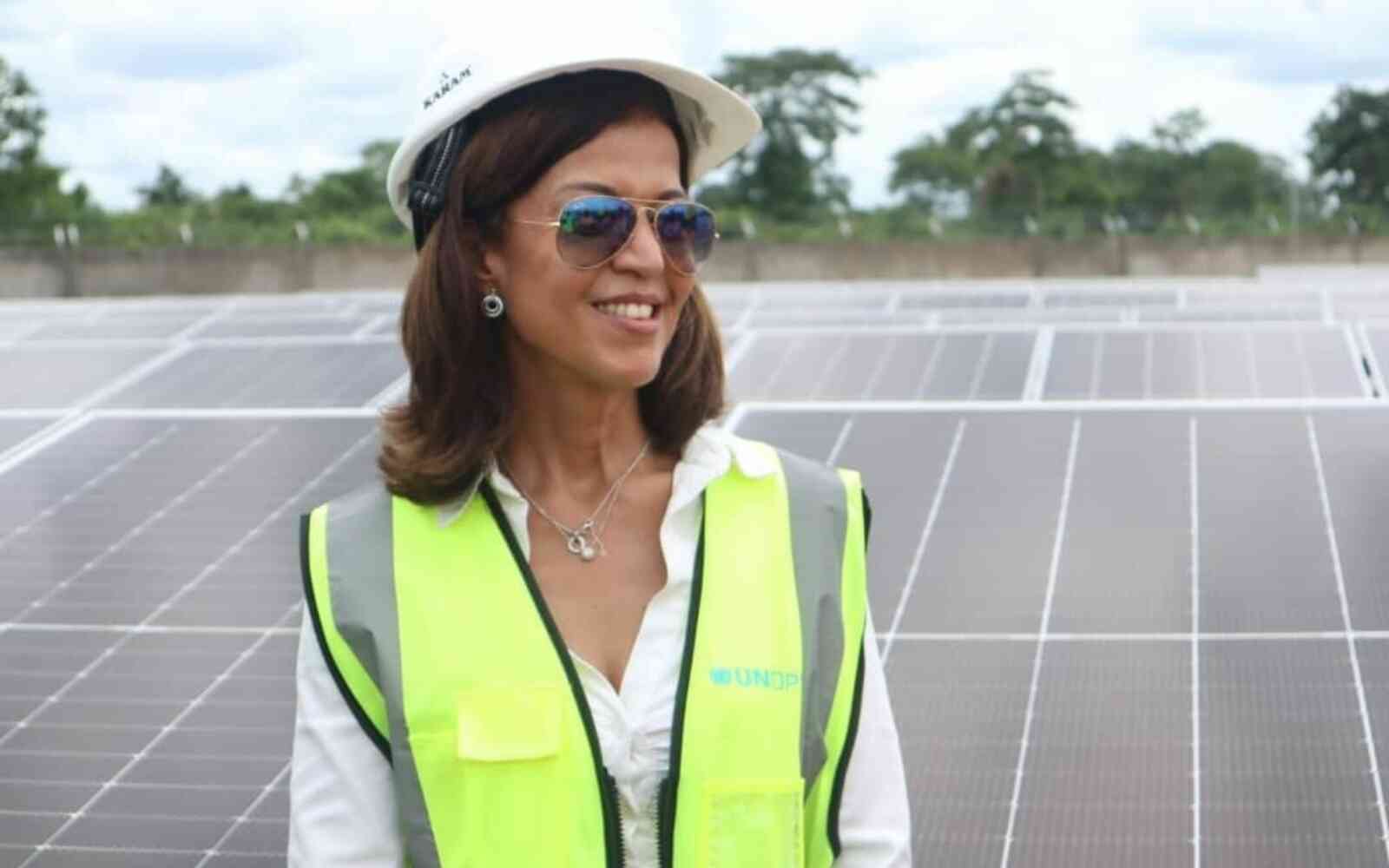The United Nations Office for Project Services (UNOPS)
Powering progress: Supporting Sierra Leone’s green energy transformation
An initiative between the governments of Sierra Leone and Denmark, the European Union, UNOPS and SEforALL, will expand access to sustainable energy in communities across the country.
This article was originally published on 6 June 2025 and has been updated to reflect recent project developments.
Latest updates
26 January 2026
The Salone Off-Grid Renewable Energy Acceleration (SOGREA) Initiative today launched its first Call for Pre-Qualification Applications, inviting private sector companies to develop and rehabilitate green mini-grids in rural communities across Sierra Leone.
Funded by the European Union with an additional €2.68 million contribution from the government of Denmark, the two-year SOGREA programme is designed to reduce investment risk and boost the commercial viability of rural electrification in Sierra Leone – providing performance-based capital support to cover some upfront development costs for green mini-grids, with payments released against independently verified milestones.
By bridging the gap between the true cost of electricity supply and what rural households and businesses can afford, SOGREA will help lower tariffs while expanding connections, building on Sierra Leone’s recent mini-grid sector reforms.
Read more here.
21 October 2025
The Salone Off-Grid Renewable Energy Acceleration (SOGREA) project officially launched its €22 million Investment Support Windows, a crucial mechanism to accelerate private sector investment in green mini-grids in Sierra Leone.
The project's Milestone-triggered CapEx Investment Support provides partial financial support to private entities to cover a portion of the capital expenditure for developing new green mini-grids and upgrading existing ones. This investment will help expand connections, increase access to electricity and reduce electricity tariffs – accelerating progress toward the country’s universal energy access goals.
"The SOGREA Investment Support directly addresses the critical financing gap for green mini-grids, which are crucial for providing energy access in remote and underserved communities. This targeted grant support is a wise investment that will help Sierra Leone develop a resilient, decentralized and clean energy future for its citizens,” said Ambassador Jacek Jankowski, Head of the EU Delegation in Sierra Leone.
Read more here.
Like many nations, Sierra Leone faces an increasing energy challenge. Only 36 per cent of the population has access to electricity, and just six per cent in rural areas. This limited access impacts healthcare, education and job creation. To address this, the government has set a target to raise renewable energy use to 35 per cent by 2030 and electrify rural areas by 2027.
“By 2027, Sierra Leone will be fully illuminated. This isn't just about light; it's about igniting green industrialization and fulfilling the National Development Plan as a government,” said the President of Sierra Leone, Julius Maada Bio.
“With renewed partnerships and the will of our people, my government will end energy poverty, ensuring every child learns in light and every woman is free from the burden of firewood. This is where opportunity truly begins for every Sierra Leonean,” he added.
Funded with €34 million from the European Union, the Salone Off-Grid Renewable Energy Acceleration (SOGREA) will be implemented by UNOPS and the UNOPS-hosted Sustainable Energy for All (SEforALL). SOGREA aims to electrify 60 communities across the country, benefiting approximately 25,000 households and 2,800 businesses, through the installation of solar mini-grids, which will have the capacity of at least 5.2 megawatts per hour (MWp). This is similar to the total power needed to run 100,000 energy-saving light bulbs at the same time.
UNOPS will facilitate investment support, encouraging private sector companies to build, own and operate the mini-grids, replicating the success of the Rural Renewable Energy Project. This approach bridges the gap between energy costs and what households can afford, made possible by recent reforms to Sierra Leone’s mini-grid sector.
“The introduction of the Milestone-Triggered CAPEX Investment Support mechanism for solar mini-grids is a major milestone for Sierra Leone,” explained the EU Ambassador to Sierra Leone, Jacek Jankowski.
“Its scalability offers real potential to accelerate rural electrification across the country. We hope to see more development partners join the European Union in supporting the government-led drive towards accelerated roll-out of financially sustainable green energy,” he added.
The project has a strong focus on sustainability, including pilots for renewable energy sources beyond solar, such as mini-hydro and biomass. Additionally, it plans for circular waste management of solar panels and batteries.
At UNOPS, we believe sustainable energy is at the heart of development and we are proud to stand with the government of Sierra Leone in turning that vision into reality.
“From delivering solar mini-grids to powering off-grid communities, our work is about practical impact. We remain committed to offering our practical solutions to ensure every community can prosper,” added Jorge Moreira da Silva.
Damilola Ogunbiyi, CEO and Special Representative of the UN Secretary-General for Sustainable Energy for All, said that by working together, the government of Sierra Leone, the European Union, UNOPS, and SEforALL are showing how partnerships can deliver lasting change.
“This partnership is a powerful example of what’s possible through collaboration, strong government leadership, and innovation. Together, we are scaling clean energy for underserved communities,” explained Damilola Ogunbiyi.
“While creating an incentive structure that fuels local enterprise, strengthens the energy sector, and ensures the benefits of electrification are shared by all,” she added.











